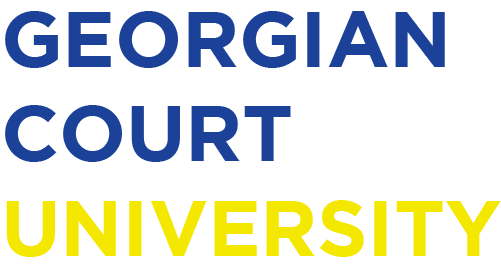Ethics: Business, Religion, & History in Paris
Info
- June 2nd - 9th, 2024
- Eligibility: Freshmen, Sophomores, Juniors, Seniors, Graduates
- Open to ALL students (*you do not need to be enrolled in a course below to join the program)
- Courses
- RS220
- RS336Honors/ GS350
- BU319
- BU604
- Application Deadline: December 18, 2023
- Credits: *See more under Academics
Program
In this Paris program, students will explore how historical and contemporary ethical questions related to business and society are affected by the French context. We will examine various ethical topics (e.g., the role of unions, wealth and inequality, environment, war) in conjunction with visits to historical and cultural sites in Paris. This program will also explore monuments significant to the history of French religion and spirituality. Students will also have the opportunity to enjoy other notable French cultural sites such as museums and the Eiffel Tower.
Itinerary
- Musee Rodin
- Eiffel Tower
- Catacombs
- Versailles
- Louvre
- Montmartre/ Sacre Coeur
Academics
The program will connect to the academic content of these courses and provide students with experiential learning.
RS220: The Christian Tradition (2 sections) (3 credits)
This course will introduce the basic beliefs of the Christian tradition by using texts written in seventeenth-century France. This period in French history is renowned for the flourishing of devotion, mysticism, and spirituality in the Christian tradition. Students will read primary sources from this period in class, including Blaise Pascal’s Pensées—notes for his defense of Christianity—, texts from what became known as the French school of spirituality, and by Jeanne Guyon, known for her involvement in the Quietist controversy about the pure love of God. Our travel in Paris will allow students to visit locations with great significance for the history of these texts, which they can then incorporate into their final essay analyzing one of the texts from the course.
RS336H/ GS350: Social Justice Ethics (3 credits)
This course examines the tradition of Catholic social teaching, a tradition that began in 1891 with the publication of Leo XIII’s encyclical, Rerum Novarum. This encyclical focused primarily on the issue of social justice for workers and it formed part of the inspiration for what became known as the worker-priest movement in France. This movement involved priests working in factories alongside the workers to evangelize them, but through their work these priests were also influenced by left-wing political movements, including communism, leading to the condemnation of the movement in the 1950s. This course will therefore examine both this history of the Catholic social justice tradition and the way the ideas from that tradition can apply today in movements focused on such diverse concerns as workers’ rights, wealth inequality, environmentalism, war and peace, prisons and the death penalty, racism, sexism, and pro-life advocacy. In Paris, students will visit sites that either relate to the history of the tradition of Catholic social teaching or to some of these social justice concerns and can apply that experience in their final writing assignment.
*This course is listed both as an honors course (RS336H) and non-honors section for students joining the program abroad (GS350).
BU319 Business & Professional Ethics (3 Credits)
The course is a study of ethical behavior in business and establishes the philosophical foundation of moral reasoning and ethical judgment. It examines moral theories and approaches to business ethics and applies a conceptual construct in the analysis and discussion of selected case studies and current corporate issues. It provides students with the general ethical underpinning of professional conduct and prepares them to understand the codes and rules of their own profession. The focus of this section will be the role of unions in both the United States and France. Comparison business cases will be used between the two countries, as well as visits to French companies and unions to provide insight.
BU604 Corporate Governance & Business Ethics (3 Credits)
Corporate governance covers the rules and international processes by which businesses are operated and controlled, with emphasis on the officers, stockholders, and bylaws of a corporation, as well as on external forces such as consumer groups, clients, and government regulations. Business ethics provides the philosophical and moral foundation used in considering ethical dilemmas in business. Current business cases as reported in new media are used extensively. For the students that elect to go abroad to Paris a focus will be on the role of unions, and an examination of wealth and inequality issues. Other areas to be examined are the changing environmental rules for business by the European Union on issues such as climate change. Insight will be provided by visits to French companies and unions.
This program is open to ALL students even if they are not registered for one of these courses.
Faculty Leaders
Dr. Michael Pawlish is an Assistant Professor of Management in the School of Business and Digital Media. He is a New Jersey native but lived in both California and Sweden. He teaches strategy, leadership, and ethics. His research interests are organizational culture and corporate sustainability. One of his prior jobs was as an adventure travel guide taking groups across the USA, up to Alaska, and around Europe. This will be his fourth visit to Paris.
Dr. Elissa Cutter is a historical theologian whose primary area of research focuses on the Port-Royal nuns, a group of allegedly heretical nuns who lived in a convent just outside of—and later in—Paris in the seventeenth century. She is a proponent of studying abroad, having, as an undergraduate, spent a semester in Strasbourg, France and participated in a faculty-led trip through Greece. She has been on numerous research trips to Paris, working at the Bibliothèque de Port-Royal and the Bibliothèque nationale de France while exploring the city. An advocate of experiential learning in general, she believes that travel can be transformative, helping us to better understand both other cultures and ourselves.
Program Costs
TBA
Need More Information?

